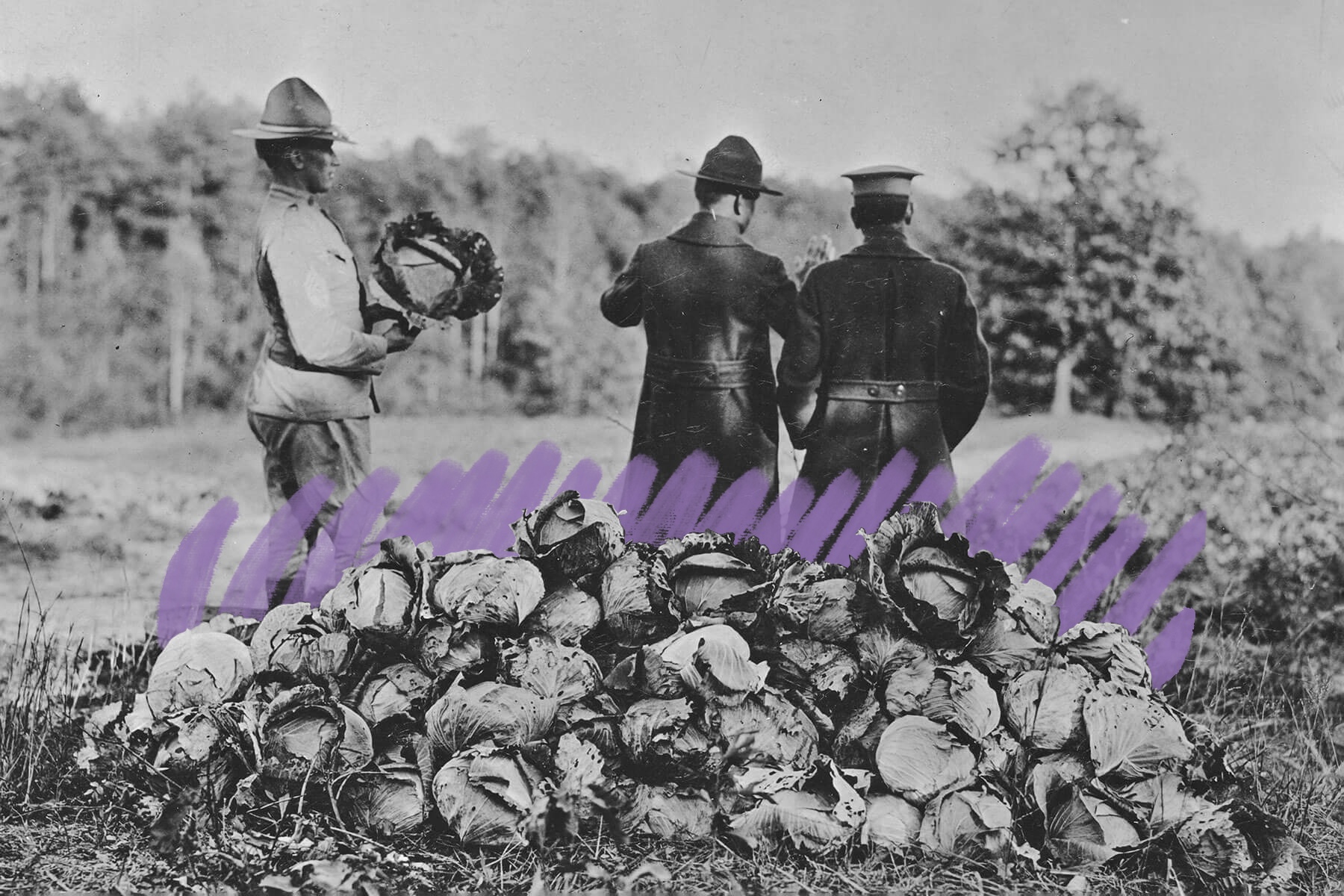During WWI, Americans called sauerkraut “liberty cabbage.”
Americans have a long tradition of rebranding any foods that bear the name of a rival nation during times of conflict. When France refused to support the United States’ war in Iraq in 2003, for example, the cafeteria menus in three congressional office buildings in Washington, D.C., changed the name of French fries — which, by some accounts, were actually invented in Belgium — to “freedom fries,” and French toast became “freedom toast.”
The U.S. pulled a similar move while at war with Germany during World War I: Sauerkraut’s German origins led Americans to rename the condiment “liberty cabbage.” Other foods that we think of as classically American yet bear the names of German cities were also affected. The word “hamburger” comes from Hamburg, Germany, so during the Great War it was rechristened “liberty steak.” The seemingly all-American hot dog, meanwhile, was called a “frankfurter” at the time, and as the connection to Frankfurt, Germany, couldn’t stand, it was rebranded “liberty sausage.” (The term “hot dog” is also sneakily of German origin, as it comes from “dachshunds,” aka “little dogs.”) And speaking of dogs, in 1917, the American Kennel Club changed the official name of German shepherds to “shepherd dog,” and in England the breed was renamed “Alsatian.”









